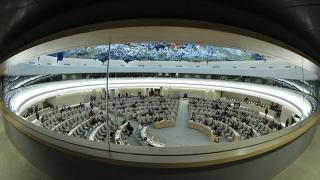
On 5 February 2013, the Optional Protocol to the International Covenant on Economic, Social and Cultural Rights received its tenth ratification, the minimum required to trigger its entry into force.
The Optional Protocol, adopted in 2008, grants individuals the right of petition under the International Covenant on Economic, Social and Cultural Rights (ICESCR). This means that individuals who believe they are "victims of a violation of any of the economic, social and cultural rights set forth in the Covenant by that State Party". States already signed up to the Optional Protocol are: Argentina, Bolivia, Bosnia and Herzegovina, Ecuador, El Salvador, Mongolia, Portugal, Slovakia, Spain and Uruguay. The Optional Protocol is expected to formally come into force on 5 May 2013.
Rights protected by the ICESCR include: the right to safe and healthy working conditions, the right of everyone to the enjoyment of the highest attainable standard of physical and mental health and the right of everyone to take part in cultural life.
Right to petition
UNA-UK has consistently called for a greater degree of individuals' right to petition under the international human rights law framework. Most recently, UNA-UK submitted a recommendation to the Joint Committee on Human Rights which called on the UK to make greater use of this important mechanism and to ratify further Optional Protocols.
Currently the UK is only a State Party to the right to individual petition under the Convention on the Elimination of All Forms of Discrimination against Women and the Convention on the Rights of Persons with Disabilities.
Cornerstone of human rights
The ICESCR is seen as a cornerstone human rights treaty, alongside the International Covenant on Civil and Political Rights (ICCPR) which protects against slavery, torture and arbitrary arrest or detention. Unlike the ICESCR Optional Protocol, the first Optional Protocol for the right to petition under the ICCPR came into force in 1976.
This disparity reflects the two different approaches commonly applied within human rights with those rights included in ICCPR considered fundamental or 'first-generation human rights'. Those included in the ICESCR are considered 'second-generation human rights', where the state has a positive duty to fulfil the rights enshrined in the Covenant, as far as it is able.






